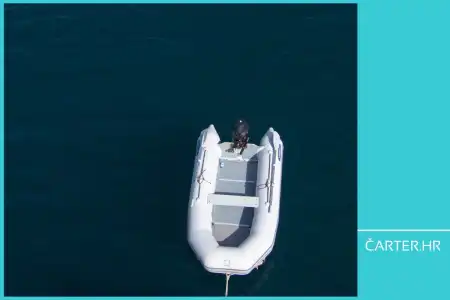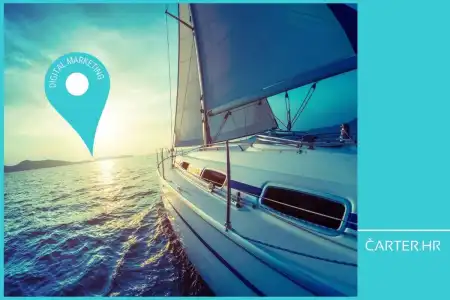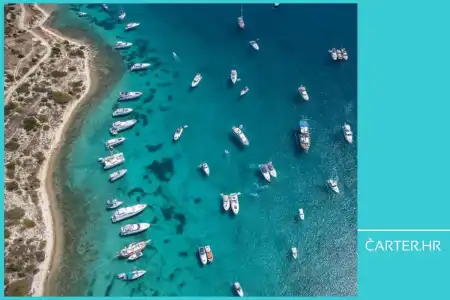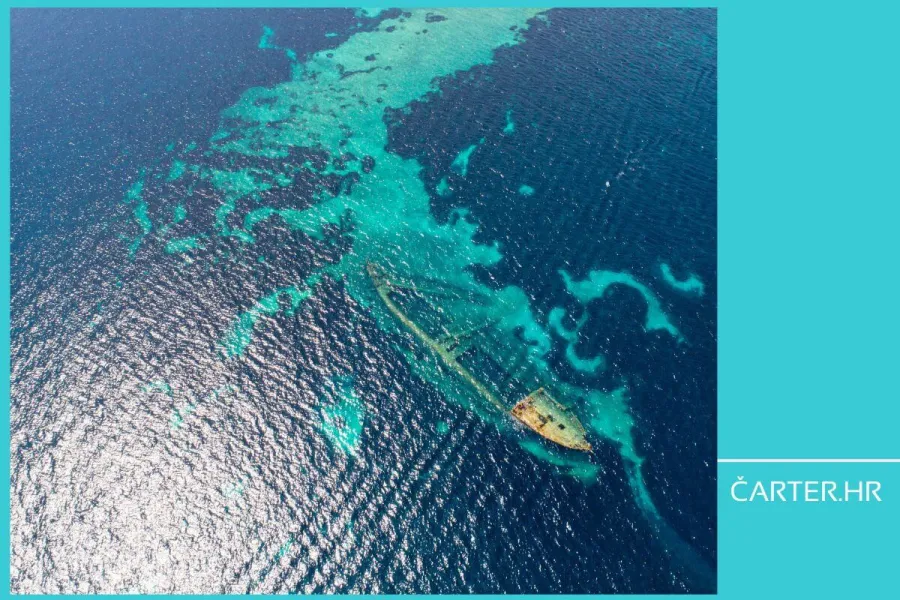
- 14.04.2025.
- News, Management
In yacht charter, everything begins and ends with the impression – in every message, tone and reaction. Today, guests don’t want perfection, but they want to know that someone is in control. They don’t want to be ignored. And when something happens, they want to know someone is taking responsibility. You can’t prevent every problem. But you can learn how to communicate during a crisis.
Communication is more important than ever.
Guests no longer just choose boats. They choose the experience.
And that experience often hinges on the first piece of information they receive when something goes wrong.
Reactions in crisis situations today are measured in seconds. The longer the silence lasts – the more room guests have for frustration, speculation and negative reviews.
If you communicate quickly and clearly – it’s possible to survive the season “with less damage” (and a better reputation).
If communication has so far been a “side thing” for you, maybe it’s time to give it the place it deserves. Because when the unexpected happens – it becomes crucial.
How the speed of information changes guest expectations
Smartphones, apps and 24/7 availability have changed consumer behavior, and with it, the relationship between guests and yacht charter companies.
The classic “we’ll get back to you as soon as possible” reply no longer cuts it. Not because guests are impatient, but because they are used to systems that reply immediately – even if only to confirm receipt of the request.
It used to be acceptable to wait for a response. Today, even a few hours of silence is taken as a sign that something’s wrong. Silence is interpreted as disinterest.
You’ve surely encountered situations like these:
- Guests report an engine issue via WhatsApp at 10:30 PM. They expect an immediate reply. You have no one available to respond at that hour. But the next morning, a negative review is already waiting for you.
- A guest films a damaged shroud and posts it as an Instagram story, tagging you... The story gets lots of views. You didn’t receive any message, call, or heads-up from the guest.
- A guest reports a fridge malfunction via chat. After 15 minutes without a response, they request a refund due to “inadequate support.”
Automated chatbots, although they don’t solve the problem, give the guest a sense that they haven’t been ignored.
Your guests have apps for tracking weather, contactless payments, and GPS monitoring – waiting becomes unacceptable.
An automated reply doesn’t mean being hasty. It doesn’t mean you need to have the solution immediately.
But it does mean the guest needs to know they haven’t been forgotten.
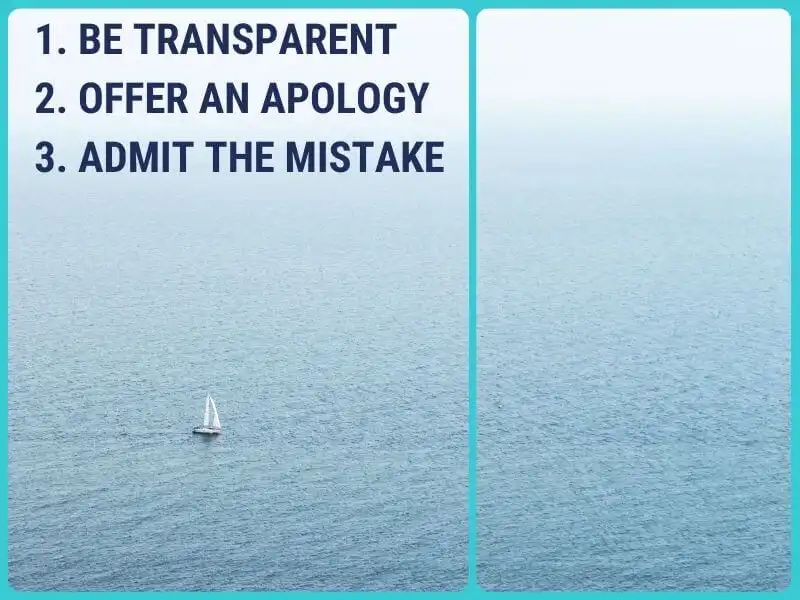
Trust is built (or broken) in a second
No one expects perfection. But guests want to know they are in safe hands. That someone is taking responsibility when things go downhill.
At the moment a complication arises – a malfunction, a delayed check-in – people immediately “read” the reaction. Is the person on the other end calm, informed, available? Or are they avoiding the conversation and insisting that “it’s nothing serious”?
Ignoring, downplaying the problem, or shifting responsibility – all of that can trigger negative comments, reviews, or even cancellations.
1. Be transparent
Guests are immediately informed upon arrival that the boat is delayed due to the previous crew.
They are told exactly how long the wait will be and offered a drink voucher while the boat is being prepared. All information is provided without them having to ask.
2. Offer an apology
The skipper is late, and the guests are nervous. A person from the base addresses them with a sincere apology, explains the situation, and immediately offers compensation.
3. Admit the mistake
The TV is not working, and this was not communicated in advance. Acknowledge the oversight and immediately offer the guests a partial refund or additional benefits.
Short, specific, responsible. That is what guests remember.
Trust does not come automatically with a booking.
And yes – it has an expiration date. If you are not attentive and transparent with your guests, they will not return. That’s why fast, thoughtful responses are not optional – they are expected.

The most common mistakes repeated every season
When people working on the field do not have accurate and timely information, the situation quickly gets out of control. A guest asks a question, the skipper shrugs, reception doesn’t respond or shifts the blame. Panic rises, and trust falls.
The assumption that “guests don’t really know what’s going on” is a bad assumption.
Many still operate under the idea that it’s better to keep quiet about a problem because “the guests won’t notice anyway.” Wrong. Guests may not know the technical details, but they quickly notice when something is being hidden or brushed off.
Common mistakes in practice:
- Employees are not informed about changes and avoid communication with guests.
- Solutions are arranged verbally, without a written record.
- Management has no insight into the situation on the ground until the problem has already escalated.
- Important contacts are not available outside working hours.
None of these mistakes are new – but they keep repeating if you are not well prepared.
What are the first steps before everything starts going downhill?
Internal plans and team preparation
Each season must start with concrete scenarios: what do we do if the guest is late, the boat is delayed, the skipper doesn’t show up, or the weather forecast prevents departure? Who is the first contact person? What is the primary channel – email, call, internal CRM? Everything must be clear.
Who speaks, when and how
When a crisis situation occurs, it is not the time for improvisation. It must be clear who is responsible and who is the main person managing the situation. Communication must be aligned and consistent. There must be no mixed messages that confuse guests.
Examples of good preparation:
- A checklist for all employees, with instructions for different scenarios.
- A group chat for quick internal coordination.
- One contact person for each category – guests, partners, owners.
What kind of communication is needed with guests when things go downhill?
What to say immediately, and what to save for later
In the first phase, it is important to say what is happening and what is currently being done to resolve the situation. Details that may cause panic – such as possible additional complications – are better communicated once the situation is under control.
Tone of voice that calms, not adds panic
The situation should be communicated in a way that reassures the guests, even if the news is unpleasant. Sentences should be short, clear and human, for example: “We are currently working on the solution, we will get back to you in 15 minutes with more information.” or “Thank you for your patience – you reported it on time and that helps us.”
The role of the skipper and on-site staff
Skippers and technical staff are often the first to come into contact with guests when a problem arises. And that is precisely why – their approach can turn the situation for the better or make it worse.
That’s why your employees need to know how to talk to a guest who is angry, confused, or scared. And that is not learned instinctively – it is trained.
Short training sessions, based on real-life scenarios, help build confidence and speed of reaction. Half an hour is enough to go through a few situations: a delay, a malfunction, a reservation misunderstanding.
Without that basic training, employees can unintentionally worsen the impression, even though they are not responsible for the issue itself.
Phrases that work are simple, but create a sense of presence and control:
- I’m listening – tell me what happened
- Please stay calm, I’ll inform the relevant team immediately
- We’re already working on a solution
- I appreciate you informing us right away
- I’m checking now, I’ll get back to you in 10 minutes
Tone of voice, body language, and willingness to communicate – that’s what guests remember. And although none of your employees are PR experts, they are often the first and most important link in the communication chain.
How to inform boat owners and business partners
When an incident occurs, communication does not end with the guests. Boat owners and business partners want to know what is happening – and they want to know quickly. What they do not want are exaggerations, speculation, and vague reports.
Information must be concrete, concise, and without dramatization. It must be clear what happened, when, who is on-site, and what is being done.
A boat owner does not want to hear “we had chaos in the marina.” They want to know the facts; the mast is damaged, the damage has been assessed, the service is arriving tomorrow morning, and an alternative has been offered to the guests.
If the situation involves multiple parties – marina, service providers, agencies – involvement must be quick and direct. “Let’s first check with them” is not an option. Everyone must be in the same information loop. No hidden emails or behind-the-scenes communication.
And for such situations, you need to have a designated person responsible for providing information (who to contact, in what way, how to communicate further).
Good communication protects your reputation. Every season is demanding, and everyone wants to know that someone has things under control.
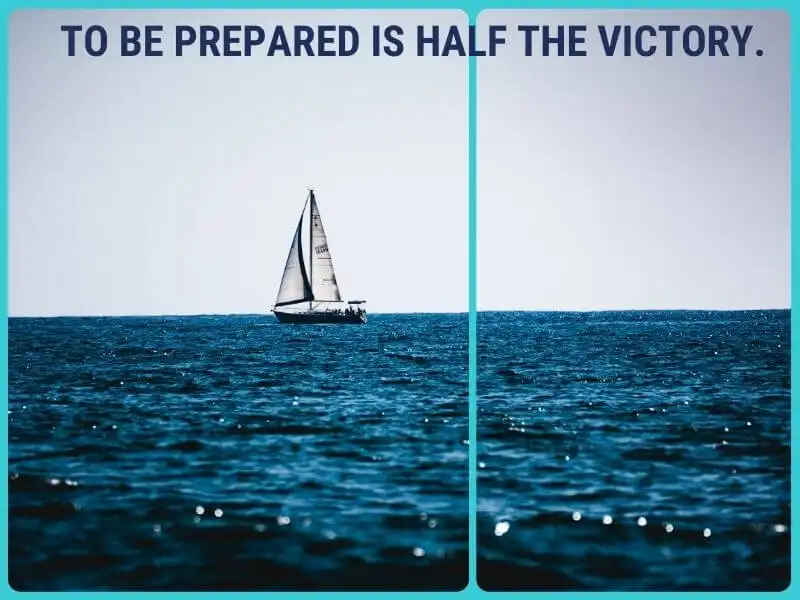
Why good preparation is half the victory
When it comes to crisis situations, it’s not a question of if, but when. Those who are prepared will handle it more easily. Those who improvise have no control over the situation.
Every season brings its own challenges. But instead of forgetting problems once they’re solved, keep records and analyze them so the same mistakes can be avoided next year.
Employees who know their roles don’t panic. They won’t waste time looking for information or waiting for instructions – they will act immediately.
After each major incident, answer three key questions:
- What went well? (What helped in resolving the issue quickly?)
- What didn’t? (Which steps failed or caused additional problems?)
- What can we change next season? (Which processes need improvement?)
If the same mistake keeps happening, the procedure needs to be permanently changed.
Actively monitor your procedures and improve your crisis protocols – not just to solve problems – but to prevent them in the future.
Categories of trends
- News
- Sale
- Marketing
- SEO
- Web design
- Social media
- Technology
- Regulations
- Management
- Education
- Finances
- User experience
Newsletter
Sign up for the newsletter and receive the latest trends and tips straight to your inbox

